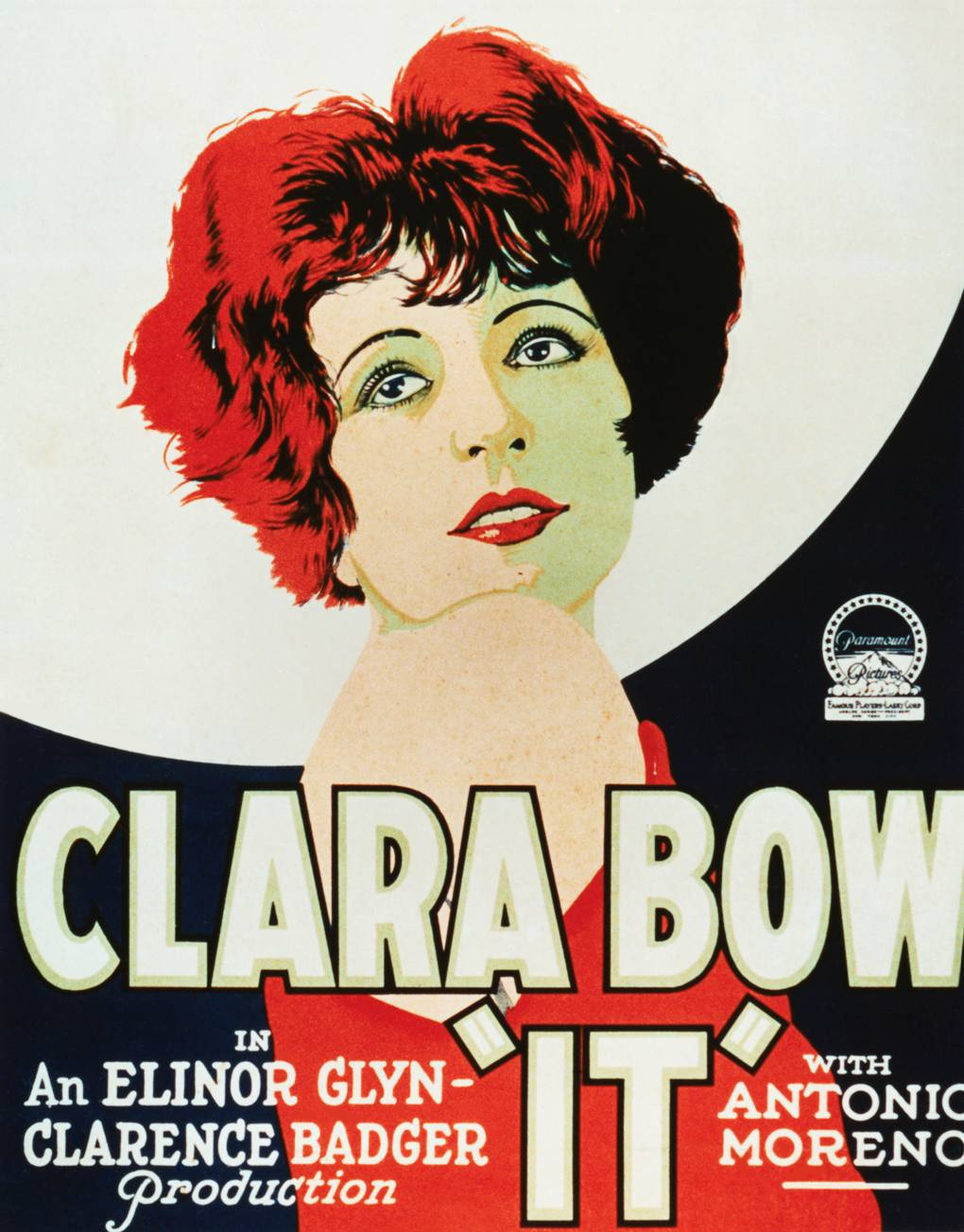“Sweet Santa Claus, give me
him!” With those immortal words, Betty
Lou Spence burst to life and onto screens worldwide in the first romantic movie
of the modern era, ‘It’.
And shockingly modern it was. While Mary Pickford was still playing
children and Lillian Gish was terminally wreathed in a halo of curls and lace,
Clara Bow stepped onscreen and showed the world what sex appeal was – and gave
girls a plan for modern marriage-seeking that was fresh and new for the era.
Betty Lou is, in a word, upwardly
mobile. She’s a shopgirl with a lust for
life and fun and the kind of fella who can keep up with her. Screw money – if you can’t ride a Cony Island
roller coaster and then chug down a hot dog, you ain’t Betty Lou’s type. Developing a crush on her upper crust boss –
owner of ‘the world’s largest department store’ and a clear stand-in for the
Woolworth – Betty Lou peruses love because it’s a part of her vibrancy, her liveliness
her all-out joie de vivre. That her
potential beau is rich means absolutely nothing to her.
The complications lying between Betty
and the stuffy Cyrus Waltham Jr. are class-driven and yet bigger than the
social straits that bind them. Cyrus
quickly figures out that Betty’s not loose just because she’s a working girl,
and Betty soon learns that even stuffy rich boys can have fun; thus the
ultimate pressure comes from outside of the union – in the form of a subplot
that only a silent film writer could love, the single girl who nobly self-sacrifices to
save her beleaguered friend and said friend’s infant.
The baby part of the plot is so
wtf-worthy that it comes off as a hollow excuse for a Big Misunderstanding, but
at least it serves to point up Betty’s dignity (Cyrus, on thinking the baby’s
hers, offers her a position as his well-paid mistress and she flat-out turns
him down) and Cyrus’ credulousness (he has to be set straight by Monty, Betty’s
partner in crime and close friend). It’s all almost worth it for the climatic
sight of Betty Lou single handedly rescuing Cyrus’ ex-fiancé from a drowning accident
at a boating party by punching the struggling girl to keep her from dragging
them both under the waves. Monty
consoles the soaked girl as Betty and Cyrus canoodle their way into a happy
future on the boat’s anchor; the two of
them, he tells Adele, just don’t have ‘It’!
Betty Lou Spence’s perusal of
marriage is more like a perusal of good times – of companionship. Unlike her successors, romance won’t come to
her in the form of a humbling or a halving of herself to fit the stuffy life of
her bachelor pursuer – she can pretend to be a society girl but she’s still
completely herself, still sparkling, wonderful Betty Lou. When she gets her guy – and the engagement
she rejected not but five minutes before – you’d best believe it’s because of
her spunkiness.
There’s a striking air of
timelessness around ‘It’ that clashes with its outmoded trappings. But while department stores and
dangerous-looking carnival rides might be a thing of the past, girls like Betty
Lou – and performances like Ms. Bow’s – remain as urgently new as they were
years ago.


No comments:
Post a Comment